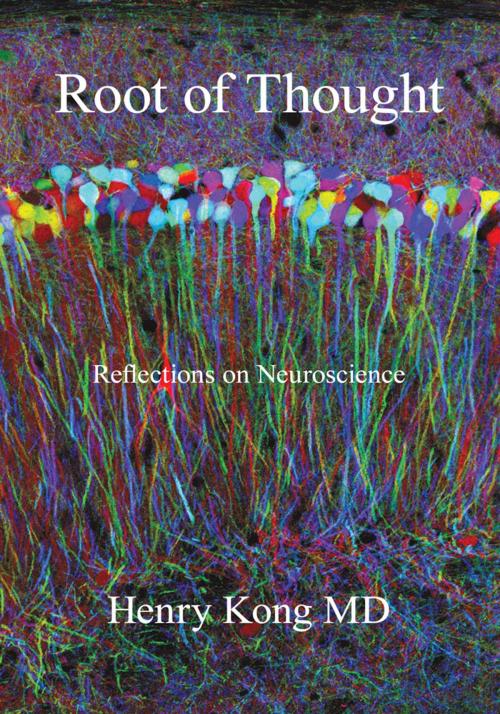Root of Thought
Reflections on Neuroscience
Nonfiction, Health & Well Being, Medical, Specialties, Internal Medicine, Neuroscience, Psychology, Cognitive Psychology| Author: | Henry Kong | ISBN: | 9781450222686 |
| Publisher: | iUniverse | Publication: | May 12, 2010 |
| Imprint: | iUniverse | Language: | English |
| Author: | Henry Kong |
| ISBN: | 9781450222686 |
| Publisher: | iUniverse |
| Publication: | May 12, 2010 |
| Imprint: | iUniverse |
| Language: | English |
Consciousness is a clever adaptation for life as a social ape. But like all adaptations, it has its limits. Lion claws and butterfly wings are made of tissue and proteins that require proper diet and maintenance to keep their integrity. Likewise, a fully functioning conscious system is a phenomenon that requires a well-nourished neural substrate to keep it going. It is important to point out that a healthy brain is necessary but not sufficient for consciousness, because not all of the brain is conscious. There are great swaths of brain that are crucially important for maintaining the vegetative functions of homeostasis such as breathing, heartbeat, temperature, and sleep. With a hundred billion neurons and a hundred trillion synapses, the brain is the most complex adaptation known. Yet we know shockingly little about how it enables the human mind to become conscious, make decisions, believe in God, and behave morally. However, recent discoveries in cognitive neuroscience, behavioral genetics, and evolutionary psychology are beginning to revolutionize old conceptions of nature and nurture, reason and passion, and automatic versus willfully chosen actions. Root of Thought will take readers on a remarkable journey through the landscape of the mind in search of its biological basis.
Consciousness is a clever adaptation for life as a social ape. But like all adaptations, it has its limits. Lion claws and butterfly wings are made of tissue and proteins that require proper diet and maintenance to keep their integrity. Likewise, a fully functioning conscious system is a phenomenon that requires a well-nourished neural substrate to keep it going. It is important to point out that a healthy brain is necessary but not sufficient for consciousness, because not all of the brain is conscious. There are great swaths of brain that are crucially important for maintaining the vegetative functions of homeostasis such as breathing, heartbeat, temperature, and sleep. With a hundred billion neurons and a hundred trillion synapses, the brain is the most complex adaptation known. Yet we know shockingly little about how it enables the human mind to become conscious, make decisions, believe in God, and behave morally. However, recent discoveries in cognitive neuroscience, behavioral genetics, and evolutionary psychology are beginning to revolutionize old conceptions of nature and nurture, reason and passion, and automatic versus willfully chosen actions. Root of Thought will take readers on a remarkable journey through the landscape of the mind in search of its biological basis.















